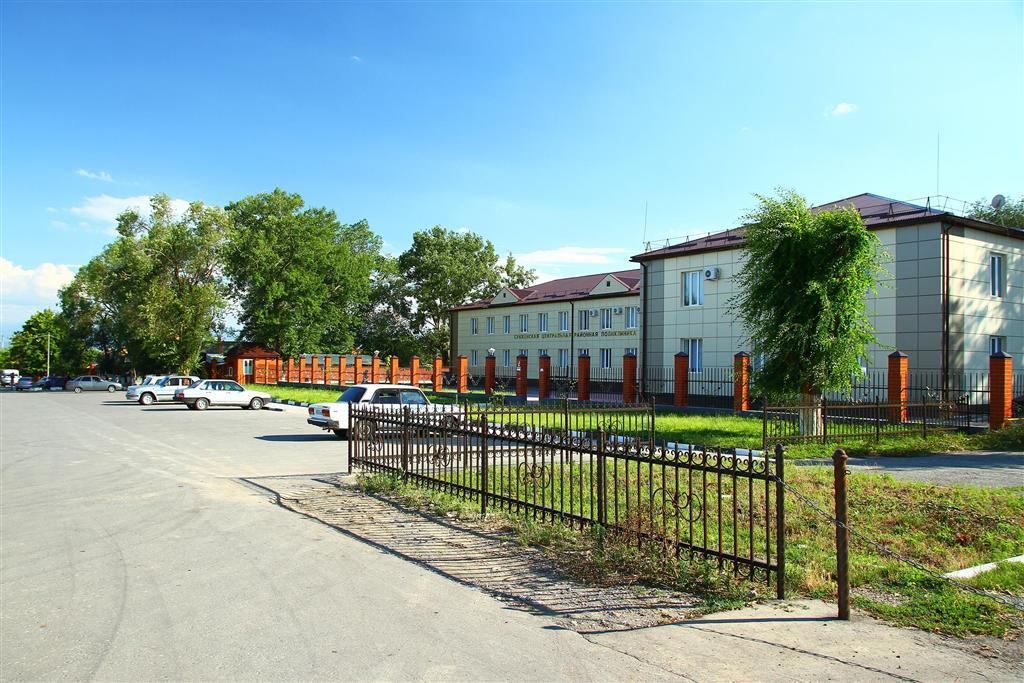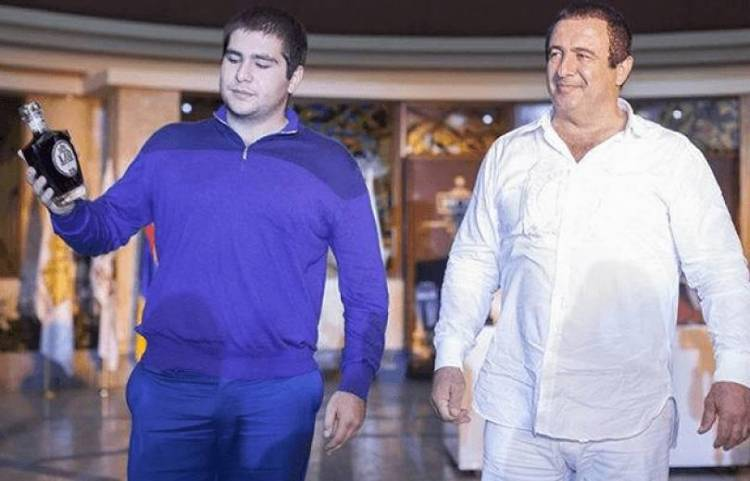
A seven-year-old child in the Russian Republic of Ingushetia might lose her arm in a notorious case of domestic violence that shook the republic.
On 3 July, seven-year-old Aisha Azhigova was admitted to a hospital in the town of Sunzha in the east of Ingushetia with complaints of shoulder pain. ‘The child had very severe swelling and abrasions in the upper limbs’, Ruslan Dolgiyev, the traumatologist who first examined the child, told Russian state TV channel Russia-1.
‘The man and the woman who brought her to the hospital didn’t allow us to undress and examine the child in detail, saying that she was in pain and it would hurt her’, he added.
According to the doctor, the man and the woman who brought the girl in said that she was injured after falling into a coil of barbed wire while playing at the edge of a ravine.
After x-rays were taken, it was decided that the child needed urgent hospitalisation whereupon she was transported to Ingushetia’s Children's Republican Clinical Hospital. Upon examination at the hospital, doctors discovered that the child’s entire body was covered in numerous contusions, cuts, haematomas, burns, and even human bite-marks.
According to Dolgiyev, Makka Ganiyeva, Aisha’s aunt, who had falsely identified herself as the child’s mother, reported that all of the girl’s injuries were self-inflicted. The abrasions on the girl’s body were, Ganieyva said, the consequence of her falling into a ravine, while the burn marks were the result of an incident three months before, when the girl, supposedly, sat down in a pot of hot soup.
Madina Ozdoyeva, a nurse at the Children's Republican Clinical Hospital, told OC Media that the child ‘had a fractured arm, limited movement in her elbow joints, and a blood clot which had led to the development of gangrene’.
Bashir Balayev, the head doctor of the hospital, who examined Aisha, told reporters from a local TV channel that her left arm was very cold to the touch — evidence of gangrene. A more detailed examination revealed she had dislocated both shoulders and had fractures in her arms. Both arms may have to be amputated, Balayev said.
On 5 July, the child was operated on by doctors from Ingushetia and other regions of Russia. After the surgery, the doctors reported that they had managed to save Aisha’s left arm.
Ongoing abuse
On 4 July, the Investigation Committee of Russia for Ingushetia initiated a criminal case into Aisha’s injuries for ‘intentionally causing grievous bodily harm to a minor’. The investigation is under the control of the central office of the Investigative Committee.
The main suspect is Aisha’s aunt, 35-year-old Makka Ganiyeva, who initially brought her to doctors and with whom the girl had lived.
‘Aisha’s mother got married and left her with her father. But her father left as well, and placed Aisha in the care of his sister’, Zarama Chakhkiyeva, the Public Defender for children’s rights in Ingushetia told Rossiyskaya Gazeta.
Independent Russian news agency Interfax cited Adam Murgustov, the deputy head of the local police station as saying that Ganiyeva’s husband was a police officer and that the family lived in Sunzha along with their two sons of preschool age.
According to RIA Novosti, Ganiyeva’s own children were also examined but no evidence of beatings or physical abuse was found. The children were still removed from their parents' care and placed in a rehabilitation centre.
An audio recording has proliferated on social media networks in Ingushetia in which a social worker present at the examination of Ganiyeva’s sons says that, according to the two boys, their mother would beat Aisha.
In a court hearing on 6 July, Ganieyva admitted that she sometimes punished the child, but insisted that she did not beat her ‘like this’. She could not explain how the child had received her extensive injuries. Her husband said that Ganiyeva disciplined the girl with a belt and a length of gas hose.
Following the hearing, Ganiyeva was remanded into two months of pre-trial detention.
Ganiyeva’s neighbours have said that they were not aware of any abuse at the house or even of Aisha’s existence and that she did not play outside with other children. One neighbour said that she had heard the child crying in the evenings, but thought it had been an infant.
‘The authorities will do their best’
The acting head of Ingushetia, Makhmud-Ali Kalimatov, said that the authorities would do everything possible for the girl’s recovery and ordered that the Leonid Roshal Medical Centre in Moscow be contacted to treat Aisha further.
On 6 July, the child was taken to the Research Institute of Emergency Paediatric Surgery and Traumatology in Moscow, where she was met by Dr Leonid Roshal and Children’s Public Defender Anna Kuznetsova. After an additional examination, it was discovered that the child had long-standing fractures of the ribs and spine.
Roshal told journalists that the clinic’s physicians would make every effort to improve the condition of the child and save her right arm.
On 8 July, Kuznetsova told the Interfax that they were not optimistic that the child would fully recover.
‘Most likely, we will have to make some tough decisions. The positive predictions made after the girl’s initial diagnosis are not valid any more’, Kuznetsova said.
An unaddressed problem
Domestic violence in Russia is decriminalised and similar cases are only widely reported on in the most extreme situations.
On 14 June, the Investigative Committee of Russia charged the Khachaturyan sisters with premeditated murder. The three siblings had killed their father after suffering years of abuse from him, including regular beatings and rape. The charge led to a series of protests in Russia and Armenia in support of the young women.
On 9 July, a Russian woman who was forced to flee the country after suffering multiple instances of domestic violence won her case against Russia in the European Court of Human Rights. The court acknowledged that the Russian authorities did not provide her with protection, thereby violating the provisions of the European Convention on Human Rights which prohibit discrimination and inhuman or degrading treatment.
Alyona Popova, the author of the bill on combating domestic violence and co-founder of the Women’s Mutual Assistance Network in Russia, told OC Media that over the past ten years, draft laws on the prevention of domestic violence in Russia had been submitted to the State Duma of Russia 40 times, but had never been submitted to any plenary hearings or even to the hearings in the Committee for Women, Family, and Children.
After the incident with Aisha Azhigova, Russia’s Public Defender, Tatyana Moskalkova, promised ‘to seek the speedy adoption of this long-overdue law’.
Several cases of domestic violence against children in Ingushetia had been reported prior to Aisha’s case but there are no official statistics on domestic violence in the republic.
According to Telegram channel The Magas Times, thousands of Ingush families offered to adopt Aisha following the revelations.




 11 July 2019
11 July 2019


